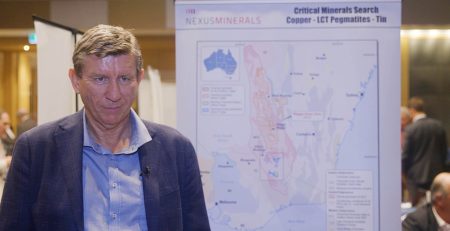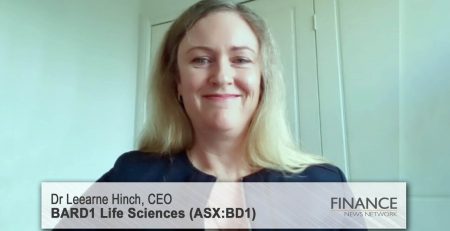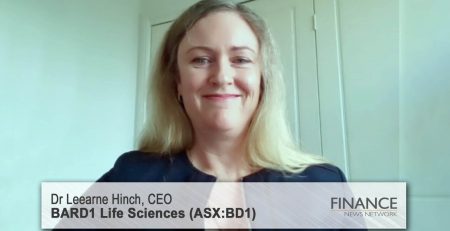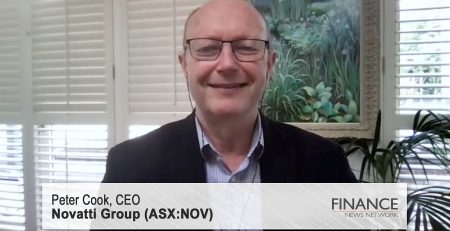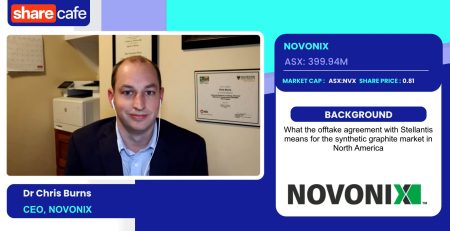Noxopharm (ASX:NOX) LuPIN trial in prostate cancer
Noxopharm Limited (ASX:NOX) Chief Medical Officer, Dr Gisela Mautner, talks about results from the company's LuPIN trial in prostate cancer, evaluating its lead product candidate, Veyonda, in combination with 177Lu-PSMA-617, a radiopharmaceutical therapy, in 56 patients with late-stage prostate cancer.
Rachael Jones: Hello. I'm Rachael Jones for the Finance News Network. Joining me today from Noxopharm (ASX:NOX) is Chief Medical Officer Dr Gisela Mautner. Gisela, welcome to the network.
Dr Gisela Mautner: Thank you, Rachael. It's great to be here.
Rachael Jones: Now, Noxopharm has just released results from its LuPIN trial into prostate cancer. Can you tell us about this trial and the data?
Dr Gisela Mautner: Yes, indeed. We have announced very exciting results of the LuPIN trial which showed a pronounced survival benefit for patients with metastatic prostate cancer. Yeah, but first let me tell you about the LuPIN trial. It's a trial that is being conducted at the St Vincent's Hospital in Sydney. And so, the St Vincent's team is evaluating a combination treatment of Noxopharm's lead product candidate, Veyonda, and a radiopharmaceutical, which is called Lutetium PSMA-617. I know it's a long name.
Now, the trial is a very early phase trial with 56 patients, and all these patients have advanced prostate cancer. Now, the data we reported on is interim data. That means it's data from the first 32 patients of the 56 in the study, and it was recently presented at a very prestigious oncology conference called the ASCO GU Symposium, which was recently held in San Francisco.
Rachael Jones: And what did the recent data show in the LuPIN trial with regards to safety?
Dr Gisela Mautner: Yes, safety is definitely the first and foremost concern in early studies, as we need to show that our new drug is not harming the patients who we are trying to help. So, yes, I'm happy to report that in the LuPIN trial, so that is with the combination treatment of Veyonda and Lutetium PSMA, the trial was very safe and well tolerated. Of course, there were some side-effects, which you would expect with any medication, but these side-effects were very mild and easily manageable.
Rachael Jones: Gisela, with the efficacy results, did the combination therapy work?
Dr Gisela Mautner: Yes, indeed. We had several really important outcomes. Firstly, nearly half of the patients made it all the way through the therapy, meaning they got the full six cycles of treatment. That, in and of itself, is already a success. Secondly, nearly all patients — that is, 90 per cent of the patients — had a PSA reduction. So, "PSA" stands for "prostate specific antigen", and it is a marker for disease activity. So, if the PSA goes down, it means that the disease is actually slowing down.
Over half of the patients had a significant PSA reduction. Now, what this means is that over half of the patients have a major anticancer effect from the combination treatment of Veyonda and Lutetium PSMA. But most importantly is the overall survival result. So, the median overall survival in the study was 17.1 months. Now, this is a very impressive result considering how sick these patients are. So, these are end-stage patients with advanced metastatic cancer who are really at the end of their treatment journey. So, you would not expect such a long duration of survival in these patients.
Rachael Jones: Now, there really are some exciting results there. Can you tell me why this data is so important?
Dr Gisela Mautner: The data is so exciting because a high proportion of patients with very advanced prostate cancer benefited from the combination treatment. And all the anticancer endpoints that we measured, be it PSA, pain, survival, they were all going in the right direction for the LuPIN trial. And, most importantly, of course, the overall survival with 17 months is really remarkable.
Rachael Jones: And to the last question now, Gisela, can you tell me about the new collaboration with Genesis Care and the Compassionate Care Program?
Dr Gisela Mautner: We are very pleased that Veyonda has been identified by Genesis Care as a promising therapy with early signs of improved outcomes in metastatic prostate cancer patients. Now, Genesis Care is a leading and global oncology services provider. And, in fact, it is the largest private oncology services provider here in Australia. And so, they have a range of oncology services from radiation therapy, including palliative radiation therapy, to chemotherapy and nuclear medicine.
So, we just signed a clinical alliance agreement with Genesis Care to be able to offer Veyonda in a compassionate use setting — specifically for metastatic prostate cancer patients. So, we are very hopeful that Veyonda will help to boost the responses to Lutetium PSMA, and we are also excited about this agreement because it helps the patients, who have basically very few treatment options left, to have another treatment option available. So, we believe this is a very positive step for the patients, as well as for Veyonda.
Rachael Jones: Dr Gisela Mautner, thanks very much for the update.
Dr Gisela Mautner: Thank you, Rachael. It was a pleasure to be here.
Ends
Copyright 2020 – Finance News Network
Source: Finance News Network




